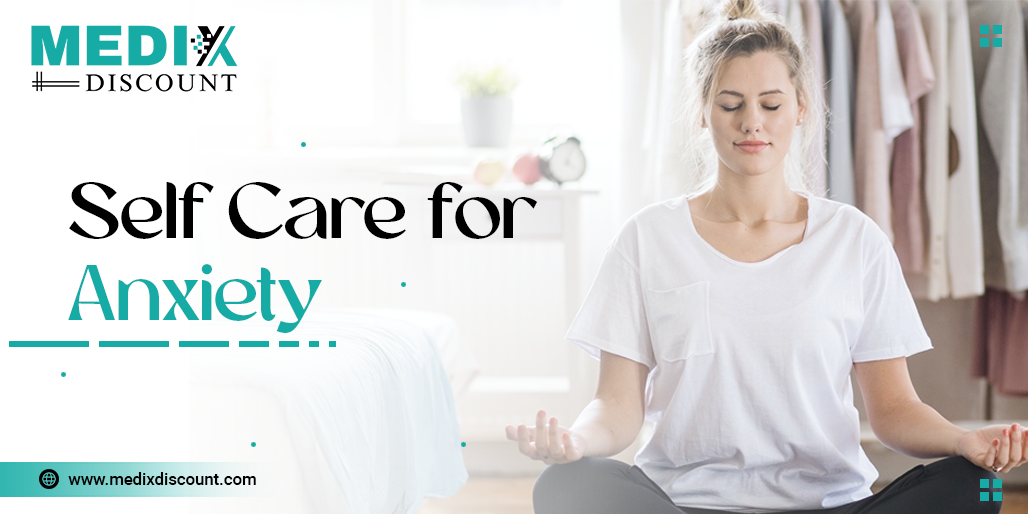Self-Care for Anxiety: Essential Practices for Mental Well-Being
Anxiety can feel like a constant, unwelcome companion, lurking in the background of daily life and often making everything seem just a little bit harder for that reason doctors recommend (Self-Care for Anxiety). Whether you’re dealing with occasional anxiety or have been managing chronic symptoms, incorporating self-care practices into your routine can be transformative. Self-care isn’t just about indulging in occasional treats or pampering yourself; it’s about establishing habits that promote mental well-being and help you navigate anxiety with greater ease. Here’s a comprehensive guide to essential self-care practices for managing stress effectively.
1. Establish a Consistent Routine
A consistent routine can create a sense of normalcy and predictability, which can be comforting for someone struggling with anxiety. Try to wake up, eat, and go to bed at the same time each day. A regular schedule (Self-Care for Anxiety) helps stabilize your body’s internal clock, leading to better sleeping, lower stress, and improved overall well-being.
Tips for Building a Routine:
- Set specific times for meals, work, and relaxation
- Incorporate time for exercise and hobbies.
- Use tools like planners or digital calendars to keep track of your schedule.
2. Practice Mindfulness and Meditation
Mindfulness and meditation are effective tools for managing Self-Care for Anxiety. These practices help you stay grounded in the present moment, reducing the tendency to ruminate on past events or worry about the future.
Simple Mindfulness Exercises:
- Deep Breathing: Focus on your breath by inhaling deeply through your nose and exhaling slowly through your mouth.
- Body Scan: Lie down and mentally scan your body from head to toe, noting any areas of tension and consciously relaxing them.
- Guided Meditation: Use apps or online resources to follow guided meditations that can lead you through relaxation and mindfulness exercises.
3. Engage in Regular Physical Activity
Exercise is a well-documented way to manage anxiety. It releases endorphins, which are natural mood boosters and help lower stress hormones like cortisol. Regular physical activity can enhance sleep quality and boost self-esteem.
Exercise Recommendations:
- Strive for at least 30 minutes of moderate exercise on most days of the week.
- Activities such as walking, swimming, cycling, and yoga can be especially beneficial.
- Find a form of exercise that you enjoy to ensure you stick with it.
4. Prioritize Sleep
Sleep and Self-Care for Anxiety are closely linked; poor sleep can exacerbate stress, while anxiety can make it difficult to get restful sleep. Prioritizing sleep is crucial for overall mental health.
Tips for Better Sleep:
- Maintain a consistent sleep schedule, even on weekends.
- Establish a calming bedtime routine, like reading a book or taking a warm bath.
- Limit screen time before bed and avoid caffeine or heavy meals late in the evening.
5. Connect with Others
Social connections offer emotional support and alleviate feelings of isolation. Talking to friends, family, or a support group can help you feel understood and less alone in your anxiety.
Ways to Connect:
- Schedule regular catch-ups with friends or family.
- Join support groups, either in person or online, where you can share experiences and coping strategies of Self-Care for Anxiety.
- Seek professional help if needed; therapists and counselors offer valuable support and guidance.
6. Practice Healthy Eating
Nutrition plays a significant role in mental health. Eating a balanced diet can improve mood and energy levels, and help manage anxiety symptoms.
Healthy Eating Tips:
- Focus on a diet that incorporates ample fruits, vegetables, whole seeds, and poor proteins.
- Limit intake of caffeine and sugar, as these can exacerbate anxiety.
- Stay hydrated by drinking water consistently throughout the day.
7. Set Realistic Goals and Boundaries
Setting realistic goals and boundaries helps prevent feelings of being overwhelmed. Break tasks into smaller, manageable steps in Self-Care for Anxiety, and be kind to yourself about what you can realistically achieve.
Goal-Setting Tips:
- Set goals using the SMART criteria: Specific, Measurable, Achievable, Relevant, and Time-bound.
- Prioritize tasks and concentrate on completing one thing at a time.
- Allow yourself to say no and set limits to avoid over-commitment.
8. Engage in Creative Outlets
Creativity can be a therapeutic way to express yourself and manage anxiety. Engaging in activities like drawing, writing, or playing music can provide a healthy outlet for your emotions.
Creative Activities to Try:
- Keep a journal to express your thoughts and feelings.
- Take up a new hobby, such as painting, knitting, or photography.
- Join a local art class or (Self-Care for Anxiety group) to combine creativity with social interaction.
9. Limit Stressors
Recognize and address the sources of stress in your life. While it’s not always possible to eliminate stress, taking steps to minimize its impact can make a significant difference in your Self-Care for Anxiety levels.
Stress-Reduction Strategies:
- Assess your daily activities and responsibilities to determine what causes the most stress.
- Delegate tasks when possible or seek help from others.
- Practice stress-reducing techniques such as progressive muscle relaxation or journaling.
10. Seek Professional Support
While self-care practices are essential, there are times when professional support is necessary. Therapists and counselors can provide additional strategies of Self-Care for Anxiety and tools to help manage anxiety more effectively.
How to Find Help:
- Look for licensed mental health professionals with experience in treating anxiety.
- Consider therapies like cognitive-behavioral therapy (CBT), which is effective in addressing anxiety symptoms.
- Explore options for medication if recommended by a healthcare provider.
Conclusion
Managing anxiety is a multifaceted process that involves both self-care and professional support. By incorporating these essential practices into your daily life, you can create a solid foundation for mental well-being and better navigate the challenges of Self-Care for Anxiety. Remember, self-care is an ongoing journey, not a one-time solution. Be patient with yourself, celebrate small successes, and seek support when necessary. Your mental health deserves attention and care, and these practices can help you build a more balanced and peaceful life.

